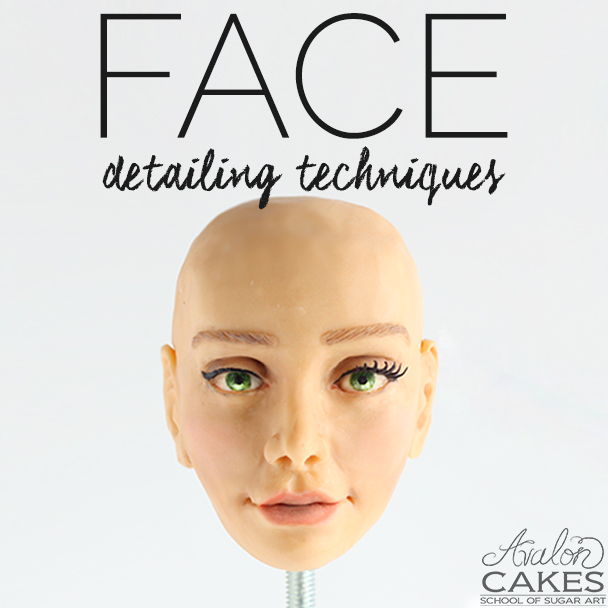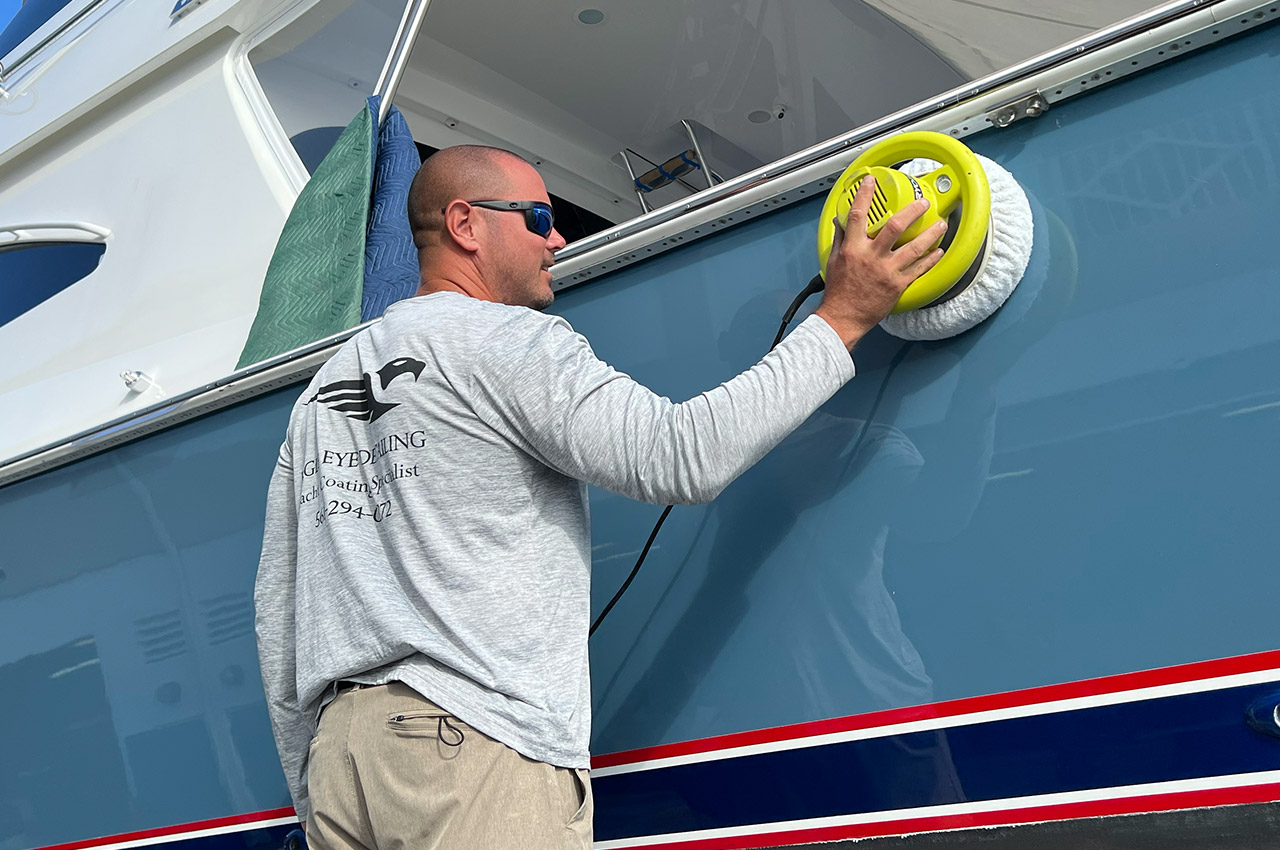Eye For Detailing: The Art Of Precision And Mastery
Let’s talk about something that’s not just a skill but an art form—having an eye for detailing. If you’ve ever wondered what sets the best professionals apart from the rest, it often comes down to this one key trait. An eye for detailing isn’t just about noticing the small stuff; it’s about turning those tiny details into something extraordinary. Whether you’re designing a product, writing code, or even decorating your home, the devil truly is in the details.
Picture this: you walk into a room where everything seems perfect. The colors blend seamlessly, the furniture is aligned just right, and there’s not a speck of dust in sight. That’s the magic of someone with an eye for detailing at work. It’s not just about perfection—it’s about creating an experience that resonates with people. And hey, who wouldn’t want to master that?
Now, if you’re here, chances are you’re either trying to develop this skill or simply curious about why it matters so much. Stick around because we’re about to dive deep into the world of eye for detailing. We’ll cover everything from its importance in various industries to practical tips on how you can cultivate this superpower. So, let’s get started!
Read also:Anna Miller Instagram The Ultimate Guide To Her Life Career And Social Media Fame
Table of Contents
- What is Eye for Detailing?
- Why Does It Matter?
- Industries Where Detailing Matters
- Developing an Eye for Detailing
- Tools and Techniques
- Common Mistakes to Avoid
- Real-World Examples
- Importance in Daily Life
- Measuring Success
- The Future of Detailing
What is Eye for Detailing?
Alright, let’s break it down. Having an eye for detailing isn’t just about spotting flaws or noticing things others might miss. It’s about understanding the bigger picture while paying close attention to the smaller components that make it all work. Think of it like building a puzzle. Each piece matters, and if one is out of place, the entire image can look off.
People with a strong eye for detailing tend to excel in tasks that require precision and accuracy. They’re the ones who catch typos before anyone else, notice when a color scheme feels off, or even spot inconsistencies in data sets. But here’s the thing—it’s not just about being nitpicky. It’s about adding value through meticulousness.
Is It a Natural Talent or a Learned Skill?
That’s the million-dollar question, isn’t it? While some folks seem to be born with this ability, the good news is that anyone can develop an eye for detailing with practice. It’s all about training your brain to focus on the little things without losing sight of the overall goal. So, if you think you’re not naturally detail-oriented, don’t sweat it. You’ve got this!
Why Does It Matter?
Here’s the deal: in today’s fast-paced world, attention to detail can make or break your success. Imagine being a designer who misses a critical alignment issue in a layout or a developer who overlooks a tiny bug in the code. These seemingly small errors can lead to big problems down the line.
But it’s not just about avoiding mistakes. When you have an eye for detailing, you’re able to elevate your work to the next level. It’s what separates good from great. For example, a chef who pays attention to plating details can turn a simple dish into a work of art. A writer who polishes every sentence can create content that truly resonates with readers.
Impact on Productivity
Let’s not forget the impact on productivity. When you’re detail-oriented, you tend to catch issues early on, saving yourself time and effort in the long run. Instead of revisiting tasks repeatedly to fix errors, you get it right the first time. And let’s be honest, who doesn’t love a bit of efficiency in their life?
Read also:Ashlyn Sullivan Boobs A Comprehensive Look At The Controversy And Facts
Industries Where Detailing Matters
Now, let’s talk about where this skill really shines. Whether you’re in design, engineering, healthcare, or even marketing, having an eye for detailing can set you apart from the competition. Here are a few industries where it makes a huge difference:
- Graphic Design: A single misplaced pixel can ruin an entire design. Designers with a keen eye for detail ensure that every element works together harmoniously.
- Software Development: Debugging code is all about spotting those tiny errors that can cause major issues. Developers with strong detailing skills save time and resources.
- Healthcare: In medicine, even the smallest oversight can have serious consequences. Attention to detail is literally a matter of life and death.
- Marketing: From crafting the perfect ad copy to designing visually appealing campaigns, marketers need to nail every detail to capture their audience’s attention.
Why It’s a Game-Changer
In these industries, having an eye for detailing isn’t just a nice-to-have skill; it’s a must-have. It’s what allows professionals to deliver high-quality work consistently. And when you’re delivering quality, you’re building trust with your clients, customers, and colleagues. Trust me, that’s worth its weight in gold.
Developing an Eye for Detailing
So, how do you go from being average to having a killer eye for detailing? It’s all about practice, patience, and persistence. Here are a few tips to help you sharpen this skill:
- Practice Mindfulness: Stay present in the moment and focus on the task at hand. Distractions can make it harder to notice details.
- Break Tasks into Smaller Steps: By breaking down complex tasks into smaller components, you can give each part the attention it deserves.
- Seek Feedback: Don’t be afraid to ask others for input. Sometimes, a fresh pair of eyes can help you spot things you might have missed.
Consistency is Key
Remember, developing an eye for detailing is a journey, not a destination. The more you practice, the better you’ll get. And hey, don’t get discouraged if you don’t see results overnight. Even the pros had to start somewhere.
Tools and Techniques
In today’s digital age, there are plenty of tools and techniques to help you hone your eye for detailing. Here are a few worth checking out:
- Grammarly: Perfect for writers and content creators, Grammarly helps catch grammatical errors and awkward phrasing.
- Canva: A great tool for designers, Canva makes it easy to align elements and create visually appealing designs.
- Trello: For project managers, Trello is a lifesaver when it comes to organizing tasks and ensuring nothing falls through the cracks.
Combining Technology with Human Touch
While tools can certainly help, they’re no substitute for human intuition. The best results often come from combining technology with a keen eye for detail. So, don’t rely solely on automation—trust your instincts too!
Common Mistakes to Avoid
Let’s face it, we’ve all made mistakes when it comes to attention to detail. Here are a few common ones to watch out for:
- Rushing Through Tasks: Speed is important, but not at the expense of quality. Take your time to ensure everything is up to par.
- Ignoring Feedback: Constructive criticism can be tough to hear, but it’s invaluable for improvement. Embrace it!
- Overlooking the Bigger Picture: While focusing on details is crucial, don’t lose sight of the overall goal. Balance is key.
Learning from Mistakes
Mistakes happen, and that’s okay. What’s important is how you learn from them. Every error is an opportunity to grow and refine your skills. So, don’t dwell on them—use them as stepping stones to success!
Real-World Examples
Let’s take a look at some real-world examples of how eye for detailing has made a difference:
- Apple’s Design Philosophy: Steve Jobs was notorious for his attention to detail, and it’s one of the reasons Apple products are so successful.
- NASA’s Precision: In space exploration, even the smallest miscalculation can lead to disaster. NASA’s meticulous approach has led to countless successful missions.
- High-End Fashion: Designers like Coco Chanel and Giorgio Armani are known for their impeccable attention to detail, which has helped them build legendary brands.
Lessons from the Best
What can we learn from these examples? That attention to detail isn’t just a skill—it’s a mindset. It’s about striving for excellence in everything you do. And when you do, the results speak for themselves.
Importance in Daily Life
But hey, it’s not just about work, right? Having an eye for detailing can improve your daily life too. Whether you’re organizing your home, planning a trip, or even cooking dinner, paying attention to the little things can make a big difference.
For instance, if you’re redecorating your living room, a keen eye for detail can help you choose the right furniture, colors, and accessories to create a cohesive look. Or if you’re baking a cake, noticing when the batter is just right can mean the difference between a delicious dessert and a burnt mess.
Small Changes, Big Impact
By incorporating attention to detail into your daily routine, you can create a more fulfilling and satisfying life. And who doesn’t want that?
Measuring Success
So, how do you know if you’re improving your eye for detailing? Here are a few ways to measure success:
- Reduced Errors: Are you catching mistakes earlier in the process? That’s a good sign!
- Improved Feedback: Are others noticing a difference in the quality of your work? Take it as a compliment!
- Increased Efficiency: Are you completing tasks faster without sacrificing quality? Congratulations, you’re on the right track!
Setting Goals
Setting specific goals can help you stay focused on improving your eye for detailing. Whether it’s reducing typos in your writing or perfecting your design layouts, having clear objectives will keep you motivated.
The Future of Detailing
As technology continues to evolve, the importance of attention to detail will only grow. With AI and automation taking over repetitive tasks, human intuition and creativity will become even more valuable. So, if you’re thinking about developing this skill, now’s the time to do it.
Imagine a future where every product, service, and experience is crafted with meticulous care. That’s the world we’re heading towards, and those with a strong eye for detailing will be at the forefront of it all.
Staying Ahead of the Curve
To stay ahead, keep learning, adapting, and refining your skills. The more you invest in yourself, the more opportunities you’ll open up. And trust me, the world needs more detail-oriented individuals like you!
Conclusion
Alright, we’ve covered a lot of ground today. From understanding what an eye for detailing is to exploring its importance across various industries, we’ve seen just how valuable this skill can be. Whether you’re looking to improve professionally or personally, paying attention to the little things can make a huge difference.
So, here’s my challenge to you: start small. Pick one area of your life where you can focus on improving your attention to detail. It could be something as simple as organizing your workspace or as complex as refining your creative process. Whatever it is, take that first step today.
And hey, don’t


